Introduction to Freemasonry and Its Historical Significance. Freemasonry symbolises humanity’s moral, intellectual, and spiritual journey from darkness to enlightenment.
Throughout history, it has shaped society, influencing politics, philosophy, science, and the arts. The path of a Mason is a serious initiation into profound truths and timeless wisdom.
One of the brotherhood’s greatest strengths is its multifaceted nature. Whether one’s interests lie in textual criticism, anthropology, mysticism, or aesthetics, Freemasonry provides a diverse range of schools of thought to explore (Marks, 2019).
In the 1700s, Freemasonry became a powerful advocate for ideals like freedom of thought, action, and equality, fostering intellectual and social progress that continues to influence modern society.
By the 1800s, the fraternity had become a protector of values, contributing to society through philanthropy, civic improvements, and leadership. However, as the 20th century approached, Freemasonry faced new challenges, including persecution during two world wars.
Though it re-emerged, some argue that its influence on global thought began to wane, shifting more toward charity and away from its broader social impact (Tresner, 2012).
As we move further into the 21st century, our noble order must confront the challenge of remaining relevant in a rapidly evolving, technology-driven world.
While Freemasonry’s rich history is celebrated, there is an urgent need to focus on its role today and in the future. By renewing its commitment to excellence, it can once again become a powerful force for positive change—a role it has proven capable of fulfilling in the past (Bailey, 1996).
Masonic Degrees and Moral Progression
Freemasonry guides its members through a structured path of moral and spiritual growth, symbolised by the progression through the three degrees, each rich with teachings on ethical behaviour, self-improvement, and service to humanity.
First Degree: Entered Apprentice

IMAGE CREDIT: the square magazine digital collection
The First Degree, or Entered Apprentice, marks the beginning of a person’s spiritual journey. It emphasises spiritual rebirth, self-discipline, and purification.
The working tools—the 24-inch Gauge, common Gavel, and Chisel—symbolise personal development and moral character building.
These tools teach the importance of balance, urging members to use their time wisely and continually refine their character. The rough ashlar represents the unrefined state of man, with the potential for transformation through education and self-discipline (Lewis Masonic, 2015).
Second Degree: Fellow Craft

IMAGE CREDIT: the square magazine digital collection
The Second Degree, or Fellow Craft, focuses on intellectual and mental development. Freemasons at this stage explore the mental and intellectual aspects of their nature, guided by the working tools of the Square, Level, and Plumb Rule.
These tools symbolise morality, equality, and uprightness in life and actions. Freemasons at this stage delve into the secrets of the human soul and the divine self.
Moreover, this degree also emphasises virtues like charity and mercy, encouraging Freemasons to support others in both material and non-material ways.
Social virtues such as prudence, temperance, fortitude, and justice are cultivated, ensuring that Freemasons contribute positively to society while continuing their personal journey of enlightenment (Lewis Masonic, 2015).
Third Degree: Master Mason

IMAGE CREDIT: the square magazine digital collection
The Third Degree, or Master Mason, represents the culmination of the Masonic journey within the Blue Lodge, symbolising a profound spiritual transformation.
In this degree, the Freemason learns to surrender his old self to attain a new, more perfect state, embodying wisdom, strength, and beauty.
The working tools—the Trowel and the Skirret—emphasise spreading brotherly love and maintaining moral boundaries in life.
The rituals remind us that this life is but a shadow, with true light and life existing beyond the veil of the material world. The Master Mason is thus prepared to embrace higher moral and ethical standards, contributing meaningfully to the betterment of humanity (Bailey, 1996; Wilmshurst, 1980).
Through these degrees, Freemasonry offers a path toward moral and spiritual enlightenment. Each degree builds upon the last, guiding members toward becoming better individuals—dedicated to honour, integrity, compassion, and truth.
Freemasons are equipped to operate within the sphere of spiritual endeavours, becoming true architects of the future, with the tools necessary to lead lives of virtue and purpose.
The Masonic journey, however, does not end in the Blue Lodge; it extends into other orders and appendant bodies beyond the Craft, each providing further opportunities for growth and deeper exploration of Masonic principles. (Marks, 2019; Tresner, 2012).
Service, Brotherhood, and Social Impact

IMAGE CREDIT: the square magazine digital collection
Freemasonry places a high value on service to humanity, brotherhood, and social impact—principles that are deeply connected to unity, cooperation, and compassion.
Masonic teachings emphasise the importance of supporting not only fellow Masons but all of humanity. The fraternity promotes both spiritual and cardinal virtues, along with a strong moral and social conscience, encouraging members to dedicate themselves to the betterment of society.
This commitment to service inspires members to reflect Masonic values in their actions, ensuring that they contribute to societal well-being and align with the plan of the Great Builder of the Universe (Marks, 2019).
Brotherhood in Freemasonry transcends superficial barriers of race, nationality, and class, fostering a deep and enduring camaraderie among members.
Brotherly love is not just a sentimental concept but a powerful force aimed at eliminating hatred, fear, and division in society.
This bond built on unconditional trust and shared values, often rivals or surpasses that of biological families.
Within Masonic lodges, members find a sanctuary where they support each other through challenges and successes, nurturing peace, harmony, and a collective sense of purpose (Bailey, 1996; Tresner, 2012).
Freemasonry’s social impact is significant, aligning closely with broader ideals of unity and compassion. Masons come from all walks of life, transcending differences in education, ethnicity, social status, and religion.
New Masons, in particular, must be encouraged to seek authentic brotherhood, intellectual stimulation, and opportunities to make a meaningful difference in the world. To remain relevant, Freemasons must actively embody these values in their daily lives, extending the fraternity’s principles beyond the lodge.
A good Mason strives to be a good person in all aspects of life, recognising that all humanity is one family under The Great Builder of the Universe (Tresner, 2012).
Reclaiming Freemasonry’s Role as Architects of a Better World

IMAGE CREDIT: the square magazine digital collection
Freemasonry’s potential as a force for order, peace, and harmony lies in its members’ pursuit of knowledge and their dedication to serving others.
The Masonic quest for enlightenment is not merely intellectual but moral, driven by the aspiration to become more useful to all beings. This commitment to service is embodied in the Masonic ideal of building spiritual and physical temples—dedicated to the betterment of humanity.
This spiritual lineage calls Masons to be architects and visionaries, working toward the creation of a new civilisation that reflects the highest design.
This vision highlights the importance of each individual’s role in the grand design of life, where every field of work becomes a sacred space for fulfilling the plan of the Great Builder of the Universe (Bailey, 1996; Lewis Masonic, 2015).
The deeper purpose of the brotherhood extends beyond its outward expressions of symbolic rites and social rituals. It offers a profound opportunity to realise the true essence of the Craft, reinforcing an ethos of service and innovation.
Freemasonry should not be perceived merely as a local system of morality or a social accessory but as a living philosophy—a vital guide to the most sacred and urgent matters of human existence.
The invisible, unfinished temple that Freemasonry builds is constructed from the souls of individuals. Each stone and timber represents a step towards personal and collective enlightenment.
This spiritual architecture is part of a larger divine plan orchestrated by the Great Builder of the Universe, where all forms and structures, from governments to religions, have contributed to manifesting this cosmic purpose.
As the mysteries of spirit, light, and our relationship with the Great Builder of the Universe and one another are revealed, the superficial and outdated aspects of society will fade away, making way for truth, light, and the ultimate perfection of humanity (Bailey, 1996; Wilmshurst, 1980).
Hence, Freemasonry must instil a deep sense of duty towards humanity in new members. This principle positions Masons not as superiors but as servants of the Great Builder of the Universe, embodying compassion—a virtue critically needed in a world increasingly divided by self-interest and fragmentation.
Masons must bear the responsibility of illuminating the path towards a more unified society. Despite the advancements of modern civilisation, ignorance, prejudice, and hatred persist, reminding us of the unfinished work that Freemasonry must continue to address.
Thus, we are called to reconstruct society, reform laws, and elevate public morals. Lodges must equip their members with the tools to explore fundamental questions about humanity, truth, and divine expectations, guiding them in their personal and collective pursuit of wisdom and moral clarity (Marks, 2012).
The renewal of Freemasonry should be characterised by a revitalized energy and purpose, aimed at transforming the emotional and cultural landscape toward ideals of humanity, liberty, fairness, and intellectual freedom.
To stay relevant and impactful, Freemasonry must continue to evolve as a dynamic, living force, constantly adapting to meet the challenges of the modern world while remaining true to its core principles.
This evolution is crucial for Freemasonry to fulfil its role as a guiding light in the pursuit of a better, more just society.
Masons are called to be beacons of light, holding their torches high to guide others—a gesture that is not merely symbolic but a commitment to promoting values that are timeless and eternal, transcending the transient concerns of politics and religion (Marks, 2012; Bailey, 1996).
Freemasonry must inspire its members to use their talents, strengths, and gifts in service to humanity and in alignment with the Great Builder of the Universe plan.
Love must be seen as a powerful force that starves hatred, causing it to wither. Despite the challenges the world presents, Masons must remain optimistic, constructing—step by step, brick by brick—an edifice of love, peace, and unity.
This responsibility does not require grand gestures; it calls for doing what is right in daily life—toward oneself, others, and the broader community.
In times of difficulty or conflict, our approach must to be seeking peaceful resolutions, fostering an understanding of the interconnectedness of all life on earth (Marks, 2012; Wilmshurst, 1980; Tresner, 2012).
Conclusion

IMAGE CREDIT: the square magazine digital collection
Freemasonry is more than its past; it is a living tradition that must continuously adapt to remain relevant in an ever-changing world.
While our fraternity’s rich history and timeless principles are a testament to its enduring value, it is crucial that we embody these principles in the present.
Freemasonry’s emphasis on service, brotherhood, and social impact has always been its cornerstone, urging us to extend our compassion and support beyond the walls of our lodges.
To reclaim Freemasonry’s role as a dynamic force for social progress, we must actively oppose injustice, intolerance, and division with boldness.
The world judges Freemasonry by our actions and by living our values—peaceful minds, calm hearts, and unwavering integrity—we can change negative perceptions and reveal the true power of our fraternity.
As we enter this new era, Freemasonry needs more than members; it needs devoted workers, loyalists, and enthusiasts.
The sublime degrees of Freemasonry must be earned, not given away easily. By holding our torches high and guiding others with our light, we contribute to constructing a temple of love, peace, and unity, worthy of housing the divine presence.
In this way, Freemasonry remains not only a guide for individual betterment but also a beacon of hope and a blueprint for a more just and compassionate world.
Footnotes
References
Bailey, F. (1996). The Spirit of Masonry. 5th ed. Guildford: Lucis Trust.
Lewis Masonic (2015). Emulation First Degree Ritual. Eaton Socon: Lewis Masonic.
Lewis Masonic (2015). Emulation Second Degree Ritual. Eaton Socon: Lewis Masonic.
Marks, J. (2019). 365 Level Steps: Masonic Meditation for Every Day of the Year. Great Britain: Amazon.
Tresner, J. (2012). But I Digress … Collected Articles, Speeches, and Scripts. Colorado Springs: Starr Publishing.
Wilmshurst, W.L. (1980). The Meaning of Masonry. New York: Gramercy Books
Article by: Sebastian Sęk

Sebastian Sęk is a music producer and scholar whose work bridges the realms of spirituality, psychology, and the arts. Sebastian is involved in various esoteric orders and schools, and he is also a Fellow Craft Freemason.
Freemasonry (The Galway Lodge 5408)
Confraternity of the Rose Cross
Fraternitas Rosae Crucis (The School of Soul Science)
Builders of Adytum (The Western Mystery School)
Lucis Trust (The Arcane School)
Theosophical Society (England & Wales)
Quatuor Coronati Masonic Correspondence Circle
The European Society for the Study of Western Esotericism
The Philosophical Research Society
The Masonic Philosophical Society
For more information, please visit his e-card
Recent Articles: membership
 A Rose by any other Name may not be the same Explore the profound distinctions between conferred and transmitted Masonic degrees with Bro. Scott Wisdahl. Delve into how presentation quality, personal impact, and setting shape these rituals, and consider the potential for digital adaptations in modern Masonic practices. Join the discussion on enhancing the Masonic journey and preserving its essence. |
 Progression through the Degrees; a Rite or a Privilege? Exploring the layered journey of Freemasonry, Matt DA Fletcher probes the essence of progression—whether it's a mere rite or a privileged path. Delve into a nuanced perspective where every degree is not just a milestone but a fraction of a grander continuum. |
 Quantity vs Quality within the world of Freemasonry Dive into the compelling debate of quantity vs quality within the world of Freemasonry. Discover the transformative focus on attracting members aligned with the institution's values, promising not only growth but quality growth. High-value individuals assure sustainable development with their commitment to serving the brotherhood. |
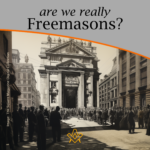 Maybe Freemasonry has opened its doors too wide. Perhaps some have not understood that the survival of Freemasonry in order to achieve its sublime purpose lies not in the number of members it has, but in their quality. Maybe we need less members and more Freemasons. Less men in Freemasonry and more Freemasonry in men. |
 What is ritual and why is it important? P1 Delve into the profound world of Freemasonry rituals and their significance. This insightful piece unravels the underlying importance of rituals, their impact on participants, and the transformative power they hold. Uncover why these centuries-old traditions remain integral to Masonic practice today. |
 Could Freemasonry be helpful for young men? Unravel the Masonic Brotherhood: Could Freemasonry be the antidote to modernity's challenges for young men? Dive in as we explore the Masonic world, its principles, camaraderie, and how its traditional rituals could help forge stronger identities in an increasingly complex world. |
 Discover the remarkable benefits of Lodge Meetings on your well-being. From fostering connections to combating stress, learn how these male-oriented gatherings offer an antidote to anger, hunger, isolation, and exhaustion. Dive into the power of shared experiences, understanding, and camaraderie. Your key to improved mental health awaits inside. |
 Tutorial for a Worshipful Master Unlock the Secrets to Leadership Mastery in our Worshipful Master's Tutorial! Brother Antonio Biella shares step-by-step guidance for Masonic Lodge leaders on honing their roles, duties, and future vision. Discover how to drive growth and engagement in your Lodge, setting ambitious goals and inspiring member participation. |
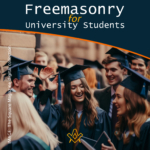 Freemasonry for University Students What are social skillset challenges facing students when they graduate from university ? |
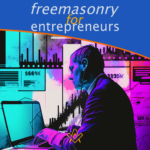 How the Core Values of Freemasonry; Brotherly Love, Relief and Truth Can Be Applied to Improve Productivity For Entrepreneurs |
 Why I became a Freemason: a personal journey of self-improvement Salik Tariq shares his reasons for becoming a Freemason – a journey of self-improvement, finding a community, and personal growth. |
 Freemasonry: Coming out of the Cloisters This paper examines the fundamental tensions on the lines of religion, gender and political ideology that exist in some jurisdictions of Freemasonry. It is on the first of these, religion, on which he makes an initial and exploratory focus. - by Gerald Reilly |
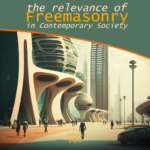 The Relevance of Freemasonry in Contemporary Society The role of Freemasonry in contemporary society is an indispensable one. Despite the challenges and misconceptions it faces, the organization remains steadfast in its humanitarian pursuits and commitment to personal growth and self-betterment. Through its efforts to evolve and adapt to the changing needs of its members and the world, Freemasonry continues to be a vital force in shaping a better future for all. |
 Has Freemasonry managed to revive and thrive after the darkness of the Pandemic? Robert Lomas gives us some (promising) insights. |
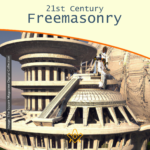 21st Century Freemasonry – a Sign of the Times? A recent article in The Times of London highlighted the dilemma 21st Freemasonry is facing. In this article one Master Mason shares his views of the strengths, and the challenges of modern Masonry. |
 A concept that is both based on our Freemasonic rituals and what we understand as teamwork. This article by Chris Batty examines why teamwork in the lodge is the network that binds us. |
 Lebanese Freemasonry has been both witness to and sometimes participants in turbulent events and forces, which shaped and influenced their world. |
 Is a Masonic Tradition Necessary? Dealing with Masonic tradition is a complex subject that requires careful analysis in order to reach a balanced point on the best etymological definition and the set of discourses and practices, which often end up being presented as such, without, however, presenting bases that support them, often serving only as a discourse that restricts and controls the masses. Fernando Rodrigues de Souza debates this complex subject. |
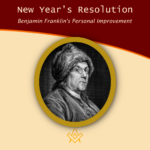 New Year's Resolution with Benjamin Franklin's Personal Improvement Are you ready for a new year's resolution challenge ? To accomplish his life’s goals, at 25 ( around 290 years ago ), Benjamin Franklin developed and committed himself to a personal improvement program that consisted of 13 virtues. You are invited to join me in practicing his daily routine for 2023. |
 The Alberta Masonic Higher Education Bursary Fund is to help the next generation of Albertans, our children and grandchildren, to obtain the education they need to lead successful lives and contribute to the welfare of mankind. As you can see from this little lesson of our history, education is truly a Masonic obligation. |
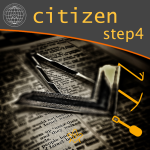 To be a Better Citizen of the World: Step 4 A value proposition for Pure Ancient Masonry as defined in terms of Citizenship; the allegories, symbolism and lessons are a blueprint for all Freemasons to be a better citizen of the world. |
 To be a Better Citizen of the World; Step 3 A value proposition for Pure Ancient Masonry as defined in terms of Citizenship; the allegories, symbolism and lessons are a blueprint for all Freemasons to be a better citizen of the world. |
 In connection with recent article about Freemasonry in the metaverse, we look at how an Egregore applies to Freemasonry in a digital world |
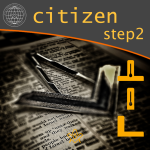 To be a Better Citizen of the World; Step 2 A value proposition for Pure Ancient Masonry as defined in terms of Citizenship; the allegories, symbolism and lessons are a blueprint for all Freemasons to be a better citizen of the world. |
 There are many brotherhoods in the world, and Freemasonry is one of the most significant and successful of them all. This article will be the focus two questions: the importance of brotherhood ? and is there room for improvement in Freemasonry? |
 Intergenerational relations in Masonry: challenges and possibilities Backed with scientific research, Professor Luiz Neto and Professor Alexandre Braune investigate the Intergenerational relations in Freemasonry and explores the challenges and opportunities. |
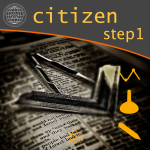 To be a Better Citizen of the World; Step 1 A value proposition for Pure Ancient Masonry as defined in terms of Citizenship; the allegories, symbolism and lessons are a blueprint for all Freemasons to be a better citizen of the world. |
 The Masonic Temple is a platform where both Freemasons and non-Masons, enthusiasts of real art and spiritual growth, connect to the new world of the metaverse. A Freemasonry in the metaverse project, based regular freemasonry principles. |
 Opportunity to fix the Sussex fudge Is there a value proposition for members, that under English Constitution Freemasonry, we have a 4 part offering; Entered Apprentice, Fellowcraft , Master Mason and Companion, conducted in a single craft lodge ? |
 Value Proposition of Freemasonry In addressing declining lodge membership and lack of attendance, we need to assess the value it offers to members. What is value, and what does it mean to you? |
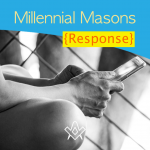 What is a 'Millennial' and what do they want from Freemasonry? You'll be surprised at the answers. |
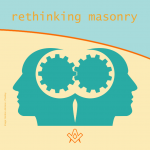 Let us help answer a fundamental question, from a confused newly raised brother asking “What does it all mean and where do I go from here?” |
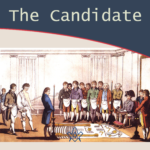 Written in 1930, much of the advice is still relevant today - although some may provoke further thought or debate! |
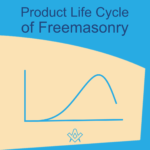 Product Life Cycle of Freemasonry An inconvenient truth about the product life cycle of Freemasonry |
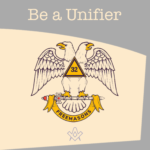 Freemasonry is local. This is where we need to start. We start with our Facebook friends, our neighbours, our colleagues, our lodges… |
 Freemasonry in the time of pandemic The Rule of Six. Localised lockdowns. Second wave? What do we do now?! The answer is simple - engage with members, promote Masonic education and get thinking outside the lodge. |
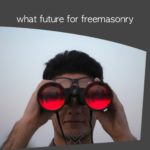 The current functioning of the Masonic movement has some positive aspects and others that are blatantly backward and counterproductive. |
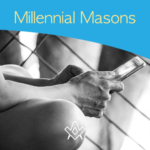 What is a 'Millennial' and what do they want from Freemasonry? You'll be surprised at the answers. |
 How to improve your Lodge Membership Marketing Program. |
 The Anti-Social Impact of Social Media The 'dark side' of social media and its negative effect on our mental health |
 If Freemasonry cannot meet, is this an opportunity to make a change to how we do things? |
 Has your lodge accepted an unknown candidate from the internet? Third in a three-part series looking at the process to accepting candidates via the internet |
 Is the brother of a brother a brother ? Rights to visit - recognition and regularity re-evaluated. |
 The second article in the Unknown Candidate series - Outlining the social media marketing process to attract the unknown candidate to make that first enquiry |
 Ask a random Freemason the purpose of Freemasonry and the likely response will be to “make good men, better”. Research undertaken by James Justin Davis Pennsylvania Academy of Masonic Knowledge. |
 Has your lodge accepted an unknown candidate from the internet? First in a three-part series looking at the process to accepting candidates via the internet |
 Mental Health - Raising its awareness and how we as Freemasons throughout the entire UK can help our fellow brethren and their families when they need it. |
 Share one thought why freemasonry is relevant today - Open question posted on Facebook with a very wide range of responses from Brethren across the globe |
 The Tipping Point of Freemasonry Why do brothers lose interest in Freemasonry and what can we do to get that spark back? At what moment did our own thoughts begin to waver? |
masonic knowledge
to be a better citizen of the world
share the square with two brothers

click image to open email app on mobile device






